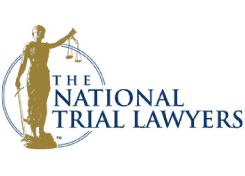 815-215-7561
815-215-7561
What is the Role of Presumed Negligence in a Personal Injury Lawsuit?
 The vast majority of personal injury lawsuits involve the concept of negligence. When a negligent party’s carelessness causes another person to be injured or killed, the negligent party is liable for the damages caused by the injury or death. Proving that the defendant acted negligently is often the most complicated and challenging part of a personal injury lawsuit.
The vast majority of personal injury lawsuits involve the concept of negligence. When a negligent party’s carelessness causes another person to be injured or killed, the negligent party is liable for the damages caused by the injury or death. Proving that the defendant acted negligently is often the most complicated and challenging part of a personal injury lawsuit.
In some cases, however, a defendant in a personal injury case is automatically presumed to have been negligent. The legal concept of "negligence per se" can help if another person’s recklessness injured you or a loved one. A knowledgeable Illinois lawyer from Mannarino & Brasfield, A Division of Schwartz Injury Law can help you establish negligence and liability and then work to help you get the full compensation you deserve.
Main Elements of a Negligence Claim
Typically, there are four elements to establishing negligence in a personal injury case. First, you and your lawyer must prove that the defendant owed you a "duty of care." Duty of care simply means that the defendant was obligated to act in a way that would not put the plaintiff at an unreasonable risk of harm. For example, a property owner who invites guests onto his property has a duty to maintain reasonably safe premises that do not include environmental hazards like broken stairs.
Next, you need to prove that the defendant did not uphold his or her duty of care. For instance, if the property owner knew or should have known that the stairs were broken and did not warn guests about this danger, he did not uphold his duty of care. The third element in a personal injury case is that the plaintiff was injured. Lastly, you must prove that the defendant’s breach of duty caused the injuries and related damages. Damages are specific losses, both financial and intangible, that directly result from an accident or incident.
Negligence Per Se Can Be a Shortcut to Proving Negligence
If the defendant violated the law, and this violation resulted in injury or death, the defendant may be considered negligent per se. "Per se" means by itself or in its own right. For a defendant to be considered negligent per se, the following conditions must be present:
-
The defendant violated a public statute.
-
The plaintiff, or injured person, is a member of the class that the statute is meant to protect.
-
The injury sustained by the plaintiff is an injury the statute intends to prevent.
-
The defendant’s unlawful behavior caused the plaintiff’s injury.
If you are injured in an accident involving a drunk driver, for example, the driver will most likely be considered negligent per se. This means that the driver would be presumed to have acted negligently, and you will not need to prove negligence further because driving under the influence is already against the law.
Choosing a Competent Personal Injury Lawyer is Essential for Proving Negligence
You cannot expect to receive compensation after a personal injury accident without evidence to support your claim. While negligence per se is a shortcut in some accident claims, this concept does not always apply.
Whether your injury resulted from medical malpractice, a car or truck accident, a premises liability accident, or another kind of eligible incident, a thorough investigation is often required to find the evidence you need. This evidence varies depending on the type of accident that injured you, but you must prove how and why it happened. You must prove to liability insurance companies that their policyholder was negligent, obligating the insurer to pay your claim. For example:
-
Car accidents: Several factors often contribute to causing traffic collisions. Determining negligence and fault can be challenging, particularly when commercial vehicles are involved, in multiple-vehicle pileups, or if a government entity shares fault. You might need to access cell phone records, obtain copies of video surveillance footage, or collect vehicle maintenance records.
-
Premises liability: You must prove that the party responsible for the property knew or should have known about the hazard and had reasonable time to address it yet failed to do so.
-
Medical malpractice: Not only must you prove that a healthcare provider’s errors caused injuries and damages, but you also must show that another provider with similar qualifications would not have made the same mistake.
Most injured victims do not have the resources to conduct an in-depth investigation and also lack the legal knowledge and experience to handle investigations effectively. Expert medical evaluations and testimony may be necessary to support your claim.
When you partner with Mannarino & Brasfield, A Division of Schwartz Injury Law, we will handle your accident investigation. We know what supporting evidence to look for and where to find it.
Rebutting the Presumption of Negligence
It is important to understand that negligence per se does not mean the defendant has no recourse. The defendant and his or her attorney can present evidence or even an affirmative defense to rebut the presumption of negligence. The defendant may have had a justification for breaking the law that reduces or eliminates his or her level of contributory negligence.
For example, if you were crossing the street at an intersection and were hit by a car that ran a red light, the car's driver is likely to be considered negligent per se. After all, the driver failed to stop at a traffic signal and injured a pedestrian—a member of the group that traffic laws are designed to protect. However, if the driver was trying to stop and a defective brake line failed, leaving the driver unable to stop safely, the driver’s attorney would probably be able to overcome the presumption of negligence.
In this example, the manufacturer of the brake line would likely share in the liability for your injuries. However, it must be proven that the brake line was defective with evidence uncovered in an investigation.
Why You Should Trust Us With Your Accident Claim
Even when you have overwhelming evidence proving that someone else’s negligence caused your injuries and damages, liable insurance companies are likely to use various strategies to devalue your claim, such as:
-
Offering an intentionally low settlement amount
-
Manipulating your degree of fault to reduce or eliminate your payment
-
Twisting your words into an admission of fault
-
Intimidating you into accepting a low offer, implying the amount is all you deserve
-
Refusing to negotiate
-
Denying your claim
Insurers have teams of lawyers whose job is to minimize claim payouts. If you handle your case alone or choose an ineffective attorney, you may fall victim to these tactics. When these companies realize you have partnered with Mannarino & Brasfield, A Division of Schwartz Injury Law, they know they cannot get away with underhanded maneuvering.
People with competent legal representation from Mannarino & Brasfield, A Division of Schwartz Injury Law typically receive substantially more compensation because we will not let insurers treat you unfairly or take advantage of you. We take our job of advocating for the best interests of our clients seriously and will do all we can to help you achieve the best possible resolution for your case. We will:
-
Force insurance companies to go through us to communicate with you
-
Calculate your eligible damages accurately
-
Ensure accurate fault assignment
-
Aggressively negotiate to reach a favorable settlement offer
-
Litigate your case at trial if necessary to secure the best results
At Mannarino & Brasfield, A Division of Schwartz Injury Law, we can handle even the most complex cases effectively, helping our clients win millions of dollars. We work on a contingency fee basis, meaning you will not have any upfront costs, and we only get paid fees if we recover compensation for you.
Contact a Rockford, IL Personal Injury Attorney
If you or a loved one were injured by another party’s negligence, contact a Winnebago County, IL personal injury lawyer at Mannarino & Brasfield, A Division of Schwartz Injury Law. Schedule a free, confidential consultation by calling 815-215-7561 today.











